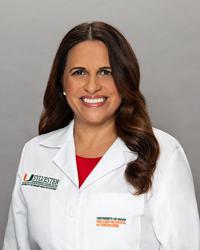More Women Should Get Screened for Lung Cancer

If I could share one piece of advice with women age 50 and older who are (or used to be) heavy smokers, I would tell them to ask their doctor about getting screened for lung cancer. Lung cancer kills more women each year than breast, uterine, and ovarian cancers combined. Many women at this age have already had more than one mammogram, but probably haven’t even considered a lung cancer screening (called a low-dose spiral CT scan). In women, lung cancer can present at a younger age than among men.
What causes lung cancer?
A personal history of moderate to heavy smoking (or long-term exposure to secondhand smoke) is the number one cause.
But, studies suggest that genetic predisposition, hormonal factors, environmental exposures, and occupational exposures may also be responsible for the number of non-smoking women developing lung cancer. Oncologists like me have seen a rise in lung cancer among women who were never smokers. In fact, one out of every five women with lung cancer has never smoked.
Why is lung cancer screening important for women?
Women with lung cancer typically experience different symptoms than men. Rather than a persistent heavy cough, the first symptoms of lung cancer among women can include fatigue, gradual shortness of breath, weight loss, and back pain. These symptoms often go ignored or are misdiagnosed.
In a National Lung Cancer Screening trial (in 2011), high-risk smokers who had three annual low-dose CT scans experienced a 20% reduction in lung cancer deaths. Several international studies have confirmed these findings and demonstrated that women can gain a higher survival benefit from screening than men by identifying lung cancer at its most curable stage.
In July 2020, the United States Preventive Services Task Force submitted draft recommendations to expand lung cancer screening to younger smokers starting at age 50 (current guidelines are for those ages 55 to 74) with a lighter (20 packs per year) smoking history. Once approved, these new guidelines will allow more women to qualify for lung cancer screening.
One out of every five women with lung cancer has never smoked.
Despite the proven benefits, a 2019 American Lung Association report found that only 4% of high-risk smokers get screened. Women, especially white women, are less likely to discuss lung cancer screenings with their doctors.
Staying safe when you’re at risk
If you’re at risk for lung cancer based on family history or your own experience with smoking, it’s best to get a low-dose CT scan at an institution with experience diagnosing pulmonary nodules.
With Sylvester’s Lung Cancer Screening Program, my patients receive the most accurate scans and diagnoses, as well as effective treatments. We have a dedicated nurse navigator who provides counseling and guidance to patients throughout the screening process. Our program has been recognized by the American College of Radiology and the GO2 Lung Cancer Foundation as a Screening Center of Excellence. Sylvester is affiliated with the International Early Lung Cancer Project and has been involved in lung cancer screening research for decades.
Lung cancer has traditionally been viewed as a male disease. But, smoking is the number one cause of death among women. Don’t allow stigma or fear to hold you back from speaking with your doctor, getting screened, and being proactive about your health. When oncologists find signs of lung cancer at the earliest stage, more than 90% of cases can be cured with surgery.
If you are concerned about your risk for lung cancer, visit Sylvester.org/LungScreening or call 305-689-LUNG (5864).

Estelamari Rodriguez, M.D., M.P.H.,
is a board-certified hematologist and oncologist at
Sylvester Comprehensive Cancer Center.
Update: Medically reviewed and approved by Dr. Rodriguez in March 2023.
Tags: Dr. Estelamari Rodriguez, International Early Lung Cancer Project, lung cancer screening, Screening Center of Excellence, Sylvester Comprehensive Cancer Center
